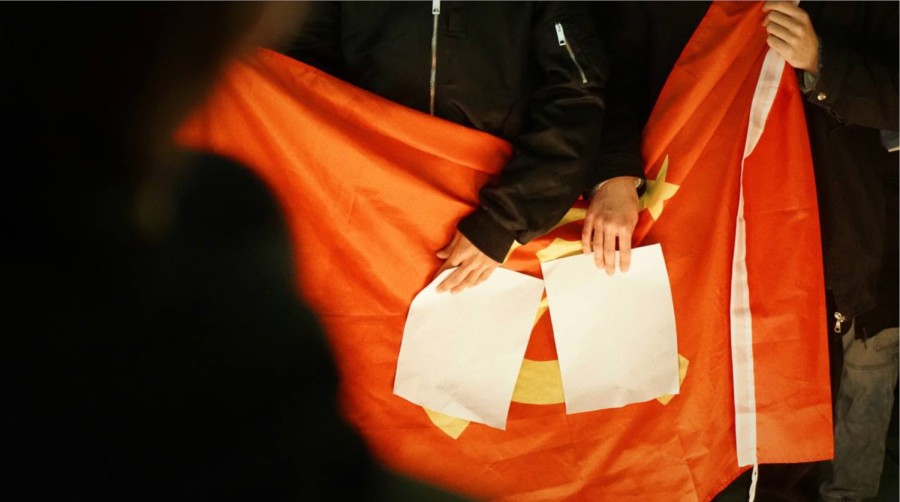Op-Ed: What China’s A4 Revolution Reveals
In China, a fire in Urumqi, Xinjiang served as the breaking point of years of pent-up rage.
The flames broke out in an apartment building in a Uyghur-majority neighborhood on November 24, 2022. The press reported that ten people were dead and nine were injured.
Urumqi had been in lockdown for more than three months. Many suspected that the severe lockdown enforcements had prevented the residents from leaving their burning home.
After this tragedy, an eruption of mass anger started in Urumqi and spread to Nanjing, Lanzhou, Shanghai and other cities. A few daring protesters even shouted for the Chinese Communist Party and President Xi Jinping to step down, which has been unseen or heard of after the 1989 Tiananmen Square incident, where the military opened fire on a group protest, crushing and arresting protesters without mercy.
As a child, the CCP always told me that we always had to put the state before ourselves, and that loving the government was equal to loving the country.
Born and raised in China, I was very proud of the Chinese people’s courage to speak up against such a powerful regime. I always felt ashamed of my identity because of the sins that the Chinese Community Party (CCP) had committed.
Now, I understand that every individual is independent, separated from the regime.
When Omicron became the dominant variant, most countries allowed citizens to return to normal lives. However, China’s policy remained unchanged, making it among the most extreme locked-down nations in the world. This caused many cities to come to a standstill and small businesses to close down. Furthermore, the policy impeded hospital procedures.
Similar to the Five Demands of the Hong Kong protests, citizens called for four requests, including allowing protests, ending zero COVID policies, releasing human rights defenders, and implementing civil rights protection enshrined in the Constitution of the People’s Republic of China, including freedom of expression.
Other than obvious direct dissents, protesters came up with elusive ways to showcase their discontent while avoiding censorship. They filled papers with “yes,” “good” and “correct” in Chinese characters.
The most used form of defiance is holding up a blank sheet of A4 sized white paper as a symbolism of oppression and silenced rage.
As a child, I was taught that I needed to be a member of the community before I was considered anything else. This is true even upon our first breath of life. This crisis has helped me realize that the individual matters, and that it is sometimes necessary to put oneself first before others.
With this in mind, I am reminded of a quote from Albert Camus, a French philosopher: “Every act of rebellion expresses a nostalgia for innocence and an appeal to the essence of being.” We aren’t born to be a cog in a machine.
There is a part of me that feels guilty about being here in America, during the height of the pandemic, when so many are suffering at home in China without the ability to speak out.
We shall meet in the light, devoid of the darkness of fear and repression.
Editor’s Note: For the safety and security of the writer, The Gator has allowed the writer’s identity to remain anonymous.





















































